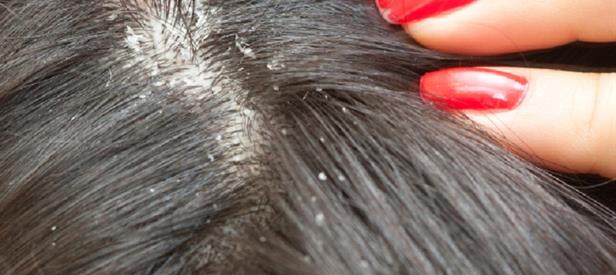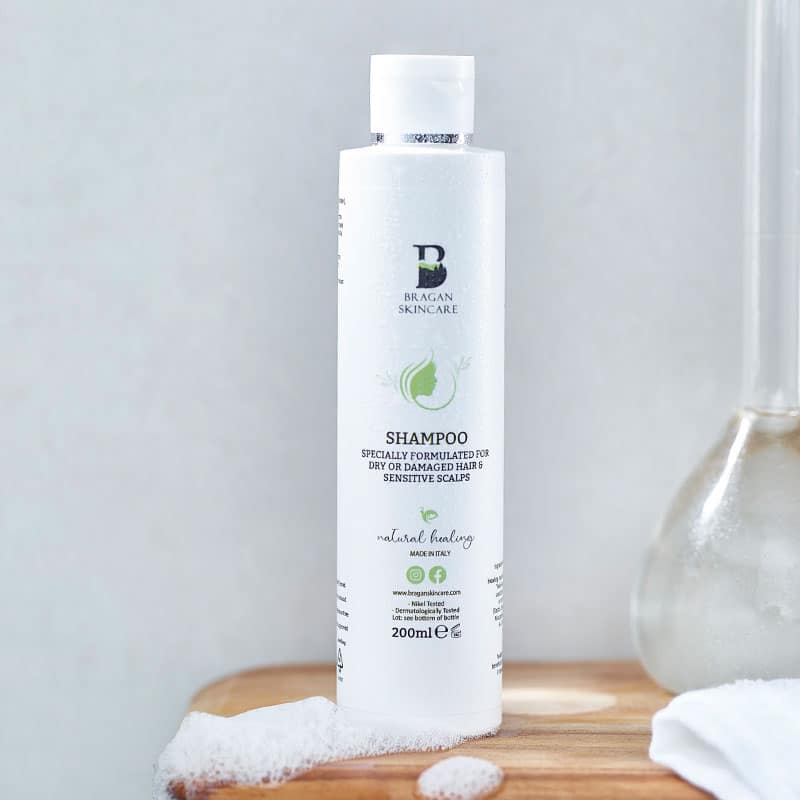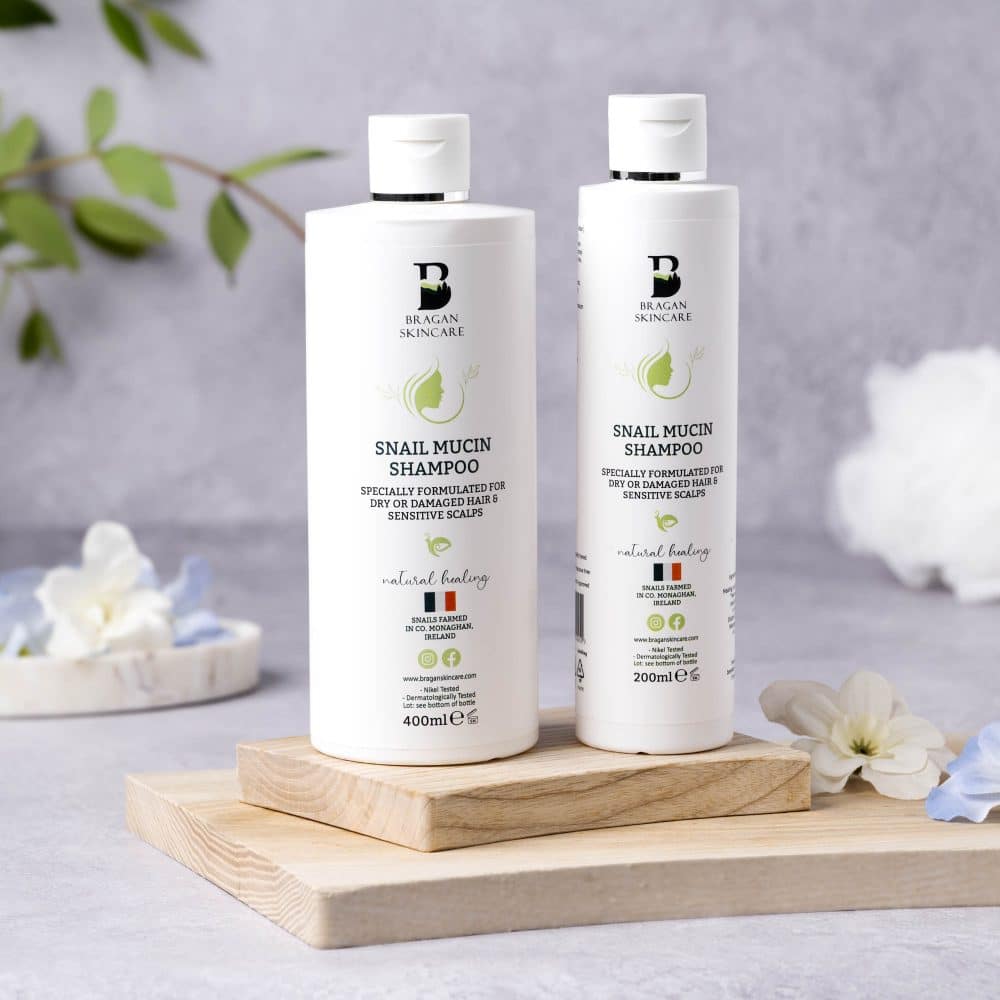How to Choose a Safe Shampoo for Seborrhoeic Dermatitis and Sensitive Scalps
Finding the right shampoo for seborrhoeic dermatitis and sensitive scalps can feel overwhelming. With so many products claiming to work wonders, knowing what’s truly safe is key. Understanding ingredients is the first step; avoiding irritants and looking for calming elements like snail mucin can make a significant difference. A careful choice won’t just soothe your scalp but also support long-term health and comfort.

Understanding Seborrhoeic Dermatitis
Seborrhoeic dermatitis is a common skin condition that can make your scalp feel anything but normal. It’s more than just a dry, itchy scalp—it’s a persistent issue with symptoms that can disrupt your daily life. Understanding it is key to managing the condition effectively, especially when it comes to choosing safe products like shampoos. Let’s break it down.
Symptoms of Seborrhoeic Dermatitis
Seborrhoeic dermatitis tends to manifest with noticeable and uncomfortable signs. Knowing the symptoms can help you identify and address the condition quickly. These are some of the most common symptoms you might experience:
- Scaly patches: These may appear as white or yellow flakes, often mistaken for dandruff, but they tend to be more stubborn.
- Redness: The affected areas often appear inflamed or irritated, adding to the discomfort.
- Itching: Perhaps the most frustrating symptom is the persistent itchiness, which can feel impossible to ignore.
- Greasy skin: Sometimes, the skin in affected areas feels unusually oily, contributing to the overall irritation.
It’s important to remember that these symptoms can vary in intensity. For some, they may only occasionally flare up, while others deal with them chronically.
Causes of Seborrhoeic Dermatitis
Why does seborrhoeic dermatitis happen? The answer isn’t always straightforward, as it usually involves a mix of factors. Here are some of the most common causes:
- Overactive sebaceous glands: The oil-producing glands in your skin can sometimes go into overdrive, creating the ideal environment for irritation.
- Yeast overgrowth: A type of yeast called Malassezia naturally lives on your skin, but an overgrowth can trigger inflammation and scaliness.
- Genetics: If a close family member has seborrhoeic dermatitis, you’re more likely to develop it yourself.
- Stress: High-stress levels don’t just impact your mental health—they’re also a significant trigger for skin conditions.
- Environmental factors: Cold, dry weather or harsh cosmetic products can exacerbate symptoms, making the skin more vulnerable.
It’s a condition that often requires ongoing attention. Knowing these causes gives you a roadmap for managing triggers and making smarter decisions about your scalp care routine, including selecting shampoos that work in harmony with your skin.
Understanding the link between symptoms and causes helps you approach seborrhoeic dermatitis as a manageable condition. With this awareness, you’re better equipped to make informed choices for your sensitive scalp.
Choosing the Right Shampoo
Selecting a safe shampoo for seborrhoeic dermatitis and sensitive scalps can feel overwhelming when faced with endless options. The wrong product can worsen irritation, but the right one can offer relief and long-term benefits. Here’s how to make an informed choice.
Avoid Harsh Chemicals
Harsh chemicals in shampoos can strip the scalp of natural oils, worsening sensitivity and inflammation. If you’ve got seborrhoeic dermatitis, it’s crucial to read labels carefully. Watch out for these common culprits:
- Parabens: These preservatives extend shelf life but may disrupt your skin’s natural balance.
- Alcohol: High concentrations of alcohol can dry out your scalp, making flakiness and redness worse.
Using products with these ingredients might feel like washing your hair with sandpaper—avoid them at all costs. Opt instead for shampoos specifically marked as free from these irritants.
Look for Gentle Ingredients
Instead of harsh chemicals, look for shampoos with gentle, skin-friendly ingredients. These cleanse effectively without irritating the scalp. Some excellent options include:
- Coconut-derived surfactants: These mild cleansing agents remove dirt without stripping your scalp.
- Aloe vera: Known for soothing properties, aloe helps calm redness and irritation.
- Tea tree oil: Has natural antifungal properties that can help combat Malassezia, often linked with seborrhoeic dermatitis.
When you see these ingredients, you’re in safer territory. These compounds are like a comforting blanket for your scalp—cleansing but kind, soothing but effective.
Consider pH Balance
The pH level of your shampoo matters more than you might think. A healthy scalp has a natural pH level of around 4.5 to 5.5, which maintains a barrier against bacteria and irritation. Using a shampoo outside this range can disrupt this balance, making symptoms worse.
Why does this matter? A shampoo with a balanced pH can help maintain your scalp’s natural defences while keeping it calm and hydrated. Many shampoos are too alkaline, which can leave your scalp feeling dry and vulnerable to flare-ups. Look for products specifically labelled as pH-balanced—they’re like a handshake of harmony with your skin.
By paying attention to ingredients and pH levels, you can better protect your sensitive scalp and reduce seborrhoeic dermatitis symptoms.
Benefits of Snail Mucin for Sensitive Scalps
When dealing with seborrhoeic dermatitis and sensitive scalps, finding gentle yet effective ingredients can feel like a challenge. Surprisingly, snail mucin has emerged as a powerful solution in scalp care. Packed with beneficial properties, it soothes irritation, promotes healing, and restores balance.
Historical Use of Snail Mucin
The use of snail mucin in skincare dates back centuries. Ancient Greeks, including Hippocrates, recognised its potential for treating skin ailments. They reportedly used crushed snails to reduce inflammation and calm irritation. Later, traditional Korean medicine also embraced snail mucin for its healing properties.
In recent years, its benefits have extended beyond facial skincare into scalp health. For individuals with seborrhoeic dermatitis or sensitive scalps, snail mucin offers a natural remedy. Its ability to support skin repair and reduce irritation makes it a valuable ingredient in modern scalp care.
Components of Snail Mucin
Snail mucin contains a unique mix of nutrients that nourish and repair the skin. Let’s explore key components and their benefits:
- Glycoproteins: These proteins protect and hydrate the skin barrier. They improve elasticity and help lock in moisture.
- Glycolic acid: A mild exfoliant, glycolic acid removes dead skin cells. This process prevents buildup and promotes a healthy scalp.
- Allantoin: Known for its soothing effects, allantoin calms redness and irritation while encouraging cell regeneration.
- Vitamins and minerals: Snail mucin is rich in zinc, copper, and vitamins A and E. These promote overall scalp health and reduce inflammation.
This combination of ingredients makes snail mucin a multitasking powerhouse. It does more than just treat symptoms—it targets root causes, fostering long-term scalp wellness.
Healing Properties of Snail Mucin
Snail mucin offers multiple benefits for sensitive scalps and those with seborrhoeic dermatitis. Here’s how it works:
- Moisturising: If your scalp feels dry and flaky, snail mucin can restore hydration. Its humectant properties draw moisture into the skin, relieving dryness without making the scalp greasy.
- Promoting healing: Snail mucin aids in skin repair by boosting collagen production. This strengthens your scalp’s barrier, protecting it from external irritants.
- Reducing inflammation: Its anti-inflammatory properties help calm redness, itching, and irritation caused by seborrhoeic dermatitis.
Think of it as a protective layer for your scalp. Over time, snail mucin creates a calmer, healthier environment where irritation no longer thrives. For those battling seborrhoeic dermatitis, it’s a gentle yet effective ally in your care routine.
By incorporating products enriched with snail mucin into your scalp care, you’re addressing symptoms while nurturing your sensitive skin. It’s a natural option that blends tradition with innovation, delivering real results for a healthier scalp.
Bragan Skincare’s Solution: Shampoo for Seborrhoeic Dermatitis
If you’re managing seborrhoeic dermatitis or a sensitive scalp, finding the right shampoo can feel like a daunting task. Bragan Skincare offers a carefully crafted solution designed to meet your unique needs. Let’s explore the formulation and customer experiences that make it stand out.
Formulation Overview
Bragan Skincare’s shampoo is specially formulated to address the challenges of seborrhoeic dermatitis without aggravating sensitive scalps. A key ingredient that sets it apart is snail mucin, renowned for its hydrating and soothing properties. This natural wonder works to repair the scalp’s barrier, reducing redness and irritation while promoting long-term comfort.
In addition to snail mucin, the shampoo features other scalp-nourishing ingredients:
- Panthenol (Provitamin B5): Locks in moisture, strengthens strands, and prevents dryness.
- Aloe Vera Extract: Soothes inflammation and delivers gentle hydration to calm irritated skin.
- Tea Tree Oil: Natural antifungal properties help combat Malassezia, a key factor in seborrhoeic dermatitis.
- Coconut-Derived Cleansers: These mild surfactants cleanse effectively without stripping the scalp of its natural oils.
The shampoo is free of parabens and harsh alcohols, making it a safe choice for those with sensitivities. Its pH-balanced formulation further ensures it works harmoniously with your scalp, preserving its natural defences and maintaining long-term health.
Customer Testimonials: Shampoo for Seborrhoeic Dermatitis
What do real users say about Bragan Skincare’s shampoo? Their feedback paints a picture of trust, quality, and effectiveness.
- “A lifesaver for my scalp!”
Sarah, a long-time sufferer of seborrhoeic dermatitis, shares, “Within two weeks, my scalp felt calmer and less itchy. The redness has reduced significantly.” - “Gentle yet effective.”
Tom says, “Most shampoos I’ve tried stripped my scalp. This one cleanses thoroughly without causing irritation.” - “Finally, relief.”
Emma highlights, “I was sceptical at first, but this shampoo has genuinely helped manage my symptoms. I can’t recommend it enough.”
The shampoo’s ability to deliver results without causing further irritation has made it a trusted choice for many. Several users have commented on how its soothing properties help break the cycle of flare-ups, giving them much-needed relief.
By combining a science-backed formulation with glowing customer feedback, Bragan Skincare’s shampoo is an ideal option for those with seborrhoeic dermatitis or extra-sensitive scalps. It’s a blend of care and results that prioritises both immediate comfort and long-term health.
For more details, you can visit Bragan Skincare’s seborrhoeic dermatitis shampoos.

Final Tips for Managing Seborrhoeic Dermatitis
Managing seborrhoeic dermatitis involves more than just choosing the right shampoo. A holistic approach can make a significant difference. From establishing a regular scalp care routine to addressing diet and lifestyle, here are some final tips to help you manage the condition effectively.
Regular Scalp Care Routine
Maintaining consistency in scalp care is crucial for preventing symptoms. A well-defined routine doesn’t need to be complicated but should be followed diligently.
- Wash regularly with suitable products: Use shampoos specifically designed for sensitive scalps or seborrhoeic dermatitis, such as those free from harsh chemicals. Washing your scalp 2-3 times a week may help prevent build-up without overdrying.
- Avoid excessive heat and styling products: Minimise the use of blow dryers, straighteners, or products that can irritate the scalp. Letting your hair air dry is often gentler.
- Brush gently: Use a soft-bristled brush or a wide-tooth comb to avoid scratching the scalp, which can worsen irritation.
- Don’t scratch or pick at flakes: It can be tempting when your scalp feels itchy or flaky, but scratching often exacerbates inflammation and may lead to infection.
Just like a good skincare routine benefits your face, a consistent scalp care routine builds a healthy foundation for managing your symptoms.
Diet and Lifestyle Considerations
Your scalp’s health doesn’t exist in isolation—it reflects your overall well-being. Small changes in diet and stress management can have a noticeable impact on flare-ups.
- Prioritise anti-inflammatory foods: Include plenty of fruits, vegetables, and omega-3-rich foods like salmon, walnuts, and flaxseeds. These support skin health and may help reduce inflammation.
- Avoid triggers: Certain foods, like processed sugars, dairy, or alcohol, may aggravate seborrhoeic dermatitis for some people. While this varies by individual, tracking your diet can help identify patterns.
- Stay hydrated: Drinking enough water supports your skin’s natural ability to stay hydrated and repair itself.
- Manage stress effectively: Stress is a major trigger for skin flare-ups. Simple strategies like regular exercise, mindfulness meditation, or even taking short breaks during the day can make a big difference.
Think of your scalp as part of a bigger picture. A balanced diet and a calm mind are like the soil that lets healthy skin grow.
Effective management of seborrhoeic dermatitis isn’t just about what you put on your scalp. A consistent care routine, paired with a healthy diet and lifestyle, provides a strong foundation for reducing symptoms and improving overall scalp health. Stay mindful of your choices and listen to your body—it knows what it needs!
Conclusion: Shampoo for Seborrhoeic Dermatitis
Choosing the right shampoo for a sensitive scalp affected by seborrhoeic dermatitis is essential for relief and long-term health. Avoid products with harsh chemicals, prioritise gentle ingredients, and ensure a balanced pH to protect your skin. Bragan Skincare’s shampoos are crafted with natural, soothing components like snail mucin, offering both comfort and effectiveness.
Take control of your scalp care with thoughtful, informed decisions. Your choice matters—because your scalp deserves better.
Shampoo for Sensitive Scalp
Plus free Skin Soothe tool with every purchase from our hair care range while stocks last! Bragan Skincare Sensitive Scalp Shampoo Our sensitive scalp shampoo harnesses the power of snail mucin to deliver gentle cleansing and deep nourishment to your hair, while soothing irritated, dry and itchy scalps. Great hair starts with a healthy scalp. Made from natural ingredients, fragrance free and with no parabens or harsh chemicals, it is ideal for those suffering with Eczema, Psoriasis, Dermatitis and various skin conditions. Snail mucin is rich in allantoin, glycolic acid, and peptides, which calm irritation, promote repair, and lock in…
Featured Bragan Skincare Products
-
€32.51 – €81.30Price range: €32.51 through €81.30Select options This product has multiple variants. The options may be chosen on the product page
-
€81.30Select options This product has multiple variants. The options may be chosen on the product page

